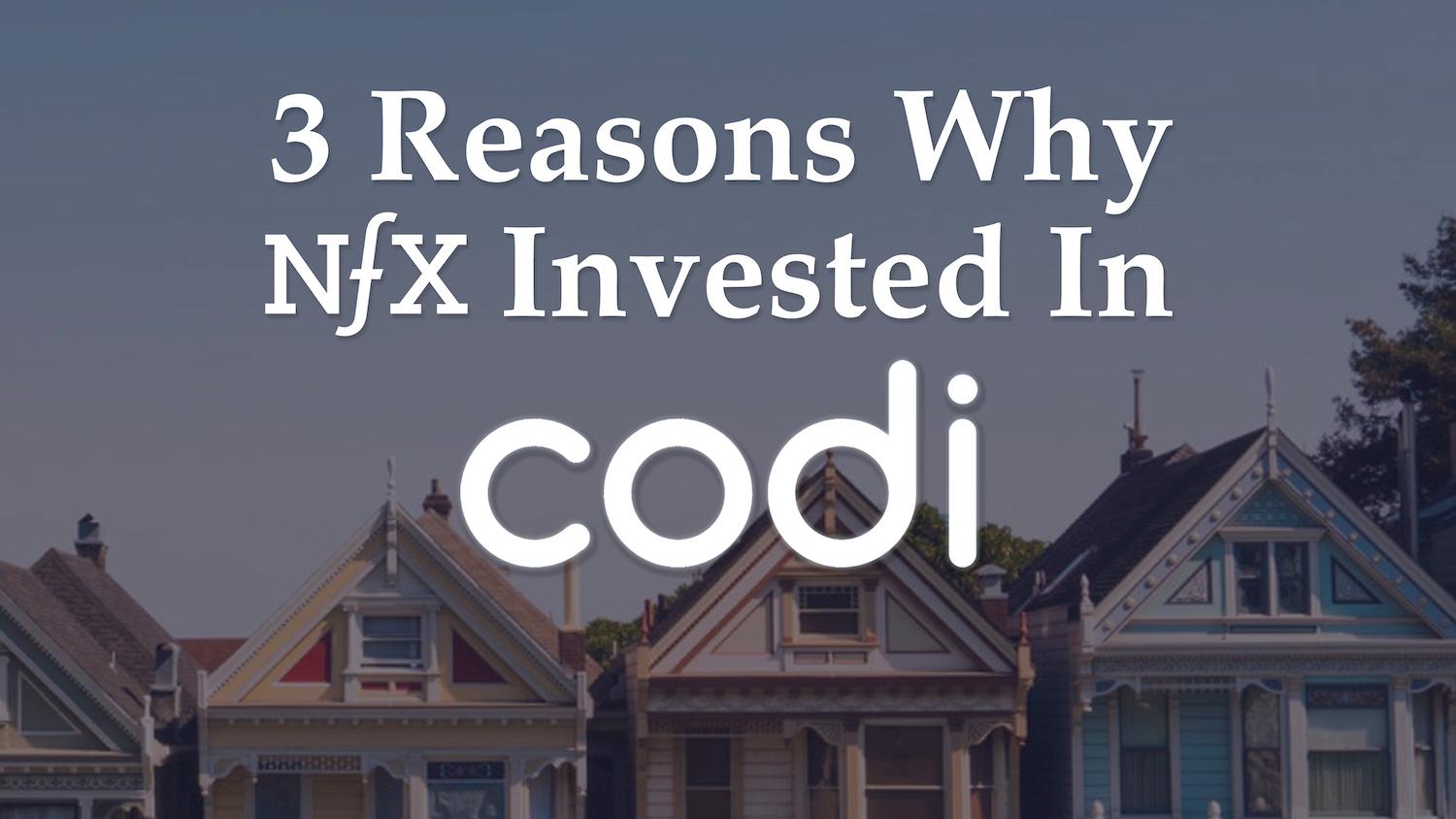

Today, Codi announced their $7 million seed funding, led by NFX, with participation from ANIMO Ventures, Urban Innovation Fund, and Coatue.
Codi is launching in New York City, its second city after San Francisco. They will expand nationally.
The timing is right for Codi. Nearly every company is being forced to experiment with new models for where employees work. Codi is the first company to offer access to daytime workspaces in private homes in neighborhoods. This means both 1) no commute and 2) no big offices where Covid can spread. Codi can be the best of both worlds, a third space for work. There are offices, there is work-from-home, and now Codi gives us WTW, Walk-to-Work.
Here are three reasons we decided to invest in Codi.
Founder-Market Fit
Few people are as qualified and motivated to improve urban systems as Christelle Rohaut, Codi’s co-founder and CEO. From her Ph.D. work in urban planning at Berkeley, research on community budgeting, and work on air quality monitoring for smart cities, Christelle has demonstrated her focus on sustainability and urban innovation for years.
Christelle and her team from Airbnb, WeWork, Lyft, and Chariot, are well-positioned to help redesign our cities.
Timing
Codi was founded pre-pandemic as an alternative to commuting to offices and co-working spaces. Covid has accelerated that change by many years, and we think these changes will persist.
The concentrated clustering of commercial real estate and companies like WeWork fail to provide a physical network structure that matches the new digital way we work going forward. Codi will shift us from monolithic commercial office space to community-centric, distributed work. In other words, now that we have Zoom, we need Codi.
Many companies can no longer justify their expensive, big office spaces as they move to a hybrid or fully remote model. Unfortunately, work-from-home only works for some people, and only for a period of time. Employees need flexible, remote-friendly work.
As my partner Pete Flint has written before, startup timing involves three things: economic impetus, enabling technology, and cultural acceptance. These are all present for Codi today.
Network Effects
Network effects are the #1 way to create defensibility in the digital world. We look for them in startups, and one of our favorite types is the 2-sided marketplace. With this marketplace type, the network is what provides the majority of the value.
Craigslist, eBay, and Airbnb are canonical examples. Similar to Airbnb, Codi unlocks latent supply — in this case, residential space like living rooms, home offices, garages, lofts, pool houses, sunrooms, kitchens, dens — to create new workspaces for the demand side — in this case remote workers, employees, freelancers.
The more supply, the more options for the demand. The more demand, the more revenue for the supply. With each new user, it increases the value to both sides to being in the Codi network.
In Closing
Codi is leading the walk-to-work movement. We hope it will transform our urban landscape for the better — lowering costs, increasing happiness, reducing pollution, and rebuilding neighborhoods. To learn more about Codi and their mission, visit their website here.
As Founders ourselves, we respect your time. That’s why we built BriefLink, a new software tool that minimizes the upfront time of getting the VC meeting. Simply tell us about your company in 9 easy questions, and you’ll hear from us if it’s a fit.
